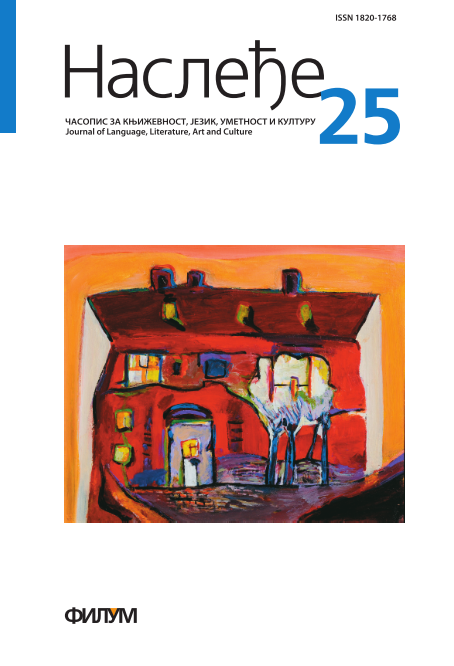THE SELF AND THE OTHER IN IAN MCEWAN’S ENDURING LOVE
Keywords:
self, other, Lacan, theory of evolution, altruism, Hegel, man, societyAbstract
The aim of this paper is to indicate that any attempt of understanding human nature (which is a constant concern of McEwan’s novels) inevitably entails the concept of the Other. Whether referring to it as a social aspect of an individual’s existence; or as a dialectic seen from philosophical point of view, the concept of Other constitutes an important part of McEwan’s ontological quest.
In Enduring Love, the writer postulates that human need for understanding both himself/herself and the world around requires a certain narrative or epistemology which could help him/her create some sort of coherent experience of the postmodern world in which “the pitiless objectivity, especially about ourselves, was always a doomed social tragedy” (Enduring Love, 181). Using three representative epistemologies – science, art and religion – represented by the three main characters, the writer exemplifies the fact that in the world of individual, religious and cultural differences, conflicts are bound to happen. McEwan, however, does not think that the Other is solely a socially restricted concept, but raises the whole issue on a more complex ontological and existential foundation. Therefore, this paper will regard the fact that the cognition of Other in oneself is a prerequisite of the Self, and consequently, of our healthy relationship with other individuals in the society. The theoretical basis for such ontological quest for the Self, the Other, as well as the others in this paper has been taken from Darwin’s evolutionary theories; Hegel’s Master and Slave dialectic and Lacan’s psychoanalytic theories.
References
Бахтин 2000: М. Бахтин Проблеми поетике Достојевског, Београд: Zepter Book World.
Чајлдс 2006: P. Childs,Тhe Fiction of Ian McEwan, Palgrave McMillan.
Чајлдс 2007: P. Childs, Ian McEwan’s Enduring Love, Oxon: Routledge.
Даглас 2001: E. Douglas, Darwin’s natural heir, The Guardian, www.guardian.co.uk [15.05.2011.]
Дукет 2001: D. Duquette, Hegel’s social and political thought. Internet Encyclopedia of Philosophy, www.iep.utm.edu/hegelsoc/ [15. 5. 2011.]
Ђерговић Јоксимовић 2009: З. Ђерговић Јоксимовић, Ијан Макјуан: полифонија зла, Београд: Геопоетика.
Фелуга: D. Felluga, Modules on Lacan: On Psychosexual Development, Introductory Guide to Critical Theory http://www.purdue.edu/guidetotheory/psychoanalysis/lacandevelop.html [21. 04. 2011.]
Фуко 1980: М. Фуко, Историја лудила у доба класицизма, Београд: Нолит.
Хегел 1986: Г. Хегел, Феноменологија духа, Београд: Београдски издавачко- графички завод.
Јевремовић 2000: П. Јевремовић, Лакан и психоанализа, Београд: Плато.
Ковал 2004: R. Koval, An Interview with Ian McEwan, Erudition Magazine, http://www.eomag.com [21.01.2010.]
Левинас 1999: Е. Левинас, Друкчије од бивства или с ону страну бивствовања, Никшић: Јасен.
Макјуан 2007а: И. Макјуан, Истрајна љубав, Београд: Паидеиа.
Макјаун 2007б: I. McEwan,Enduring Love, London: Vintage.
Рејнолдс, Ноукс 2002: M. Reynolds, J. Noakes, Ian McEwan: The Essential Guide, London: Random House.
Велс 2010: L. Wells, New British Fiction:Ian McEwan. Hampshire: Palgrave Macmillan.
Залевски 2009: D. Zalewski, The Background Hum: Ian McEwan’s art of Unease, The New Yorker, www.newyorker.com [21. 04. 2010.]






